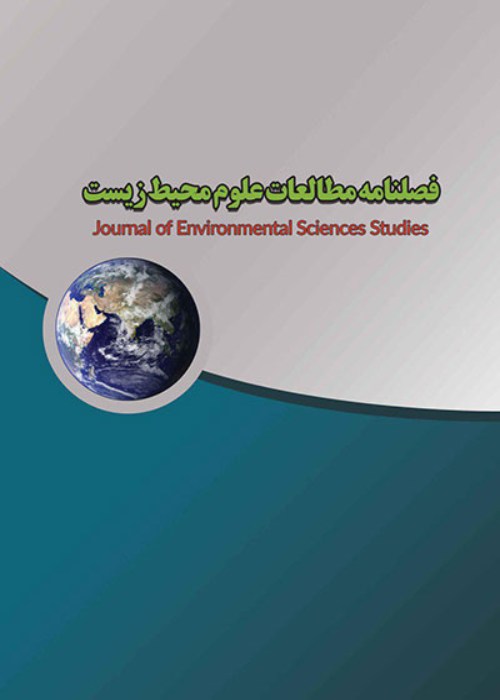Investigating the challenges of rural managers in order to protect the environment: A qualitative analysis in rural areas of Dashtestan County
Concerns about the environment have become relatively common today, as in recent years the concerns of political and scientific communities about environmental issues and efforts to improve and protect them from further vulnerability have taken on a global dimension. Human misuse of nature and natural resources has caused serious environmental problems in most countries of the world. The current environmental crises, along with population explosions, increasing poverty and the spread of dangerous diseases, threaten human society. Among the most important environmental crises can be ozone depletion, acid rain, climate change, droughts, radioactive contamination, indiscriminate deforestation, soil erosion, animal habitat degradation, vital species extinction, biodiversity depletion, deforestation He mentioned the planet, chemical pollution, vegetation loss, desertification, water scarcity and many other problems. On the other hand, several factors such as economic (degree of industrialization, trade and technological inequality), political (democracy and tyranny), social (degree of urbanization and literacy rate) and government (size and quality of government) affect the performance of the environment.The government is closest to the people and plays a significant role in the development of rural communities. The field is of great importance and attention in all fields and arenas. In rural society, management can play a very effective role in the development process. Management has an undeniable place and role in the process of rural development and planning. Without legitimate and efficient rural management, rural development goals will not be achieved. Because rural management and planning at the macro and micro levels are the most important factors in rural development. In general, attention to the rural environment is one of the important pillars to achieve rural development, which can be considered a set of measures aimed at promoting the modernization of rural areas, creating new employment opportunities, sustainable agricultural assets, resource management efficiency and ecosystem conservation. Therefore, the present study investigates the challenges of rural managers in order to protect the environment in rural areas of Dashtestan city of Bushehr province.
The present study is in the field of qualitative research in terms of applied purpose and approach, which has been done using the basic theory technique. Sampling was performed purposefully by snowball method (chain reference). The sample size was determined by data saturation when no new responses were received from the participants. In the end, the number of participants in the study reached 20. Participants of rural managers included 14 Dehyar, 4 heads of the Islamic Council and 2 members of the Islamic Council from 20 villages in Dashtestan city who were interviewed in person and virtually using in-depth semi-structured interviews to better identify and assess the environmental challenges interviewed. Were located. The duration of the interviews varied over 40 minutes. Informed consent was obtained from the participants in the study and the confidentiality of the participants and their anonymity in the findings were guaranteed. All information was recorded with the consent of the samples on cassette tape, then fully implemented and copied on paper.Basic theory technique or grounded theory as the method used in this research; Emphasizes study phenomena and creates both data and analysis from shared experiences and relationships with interviewees. Thus, the production of theory is through a systematic process by which theoretical concepts and insights are developed through the simultaneous collection and analysis of data. The main idea of this strategy is to theorize based on data from participants who have experienced the research process. In short, the researcher's interpretations of the data form his emerging codes in fundamental theory. Since the purpose of this study is to identify and investigate environmental challenges, grounded theory technique is a suitable method for the present study due to the creation of theory and the high power of this method in explaining. Also, the use of grounded theory is inevitable when there is little information about the field under study or when there is a new perspective on the field.The most important principle in the basic theory technique is the coding operation. This stage of the research is done in three stages: open coding, axial coding and selective coding. Open coding: means that all data is returned to its original state. In open coding, as much as possible, code is created by examining line by line and then defining the actions or events within it. In the following, a suitable symbol or label is selected for each of the extracted key phrases and points. Axial coding: Axial coding is mainly open for continuous comparison and analysis of coding clusters to examine the process of logical internal communication between primary categories. In other words, it seeks to discover and construct an internal logical relationship between the primary category and the main category. Selective coding: Specifies the final themes. This stage is based on the meaning and logical relationship between the main categories, which mostly corrects the main category and creates a systematic theoretical framework of effective factors. Organizes and integrates categories and topics in a way that expresses a coherent understanding or theory of the phenomenon of study.
After conducting interviews and collecting information from the target community, they were reviewed, which resulted in identifying 61 concepts as challenges for rural managers in order to protect the environment in the study area. The most repetitive concepts were the most important environmental challenges from the perspective of the study community. Therefore, factors such as non-compliance with the culture of environmental protection, lack of cooperation of farmers, lack of information and awareness of residents on methods of separation and disposal of waste and household waste, lack of necessary and skilled manpower, change of agricultural land to residential and recreational areas, and waste disposal. Recognized by tourists in rural nature as the most important challenges facing rural managers in the field of environmental protection. Finally, the concepts of interviews based on the nature of paradigm model and 7 human mechanisms (28 code), cultural (9 code), physical (4 code), natural (6 code), financial and support (7 code), educational and Skill (3 code) and social (4 code) were placed.
- حق عضویت دریافتی صرف حمایت از نشریات عضو و نگهداری، تکمیل و توسعه مگیران میشود.
- پرداخت حق اشتراک و دانلود مقالات اجازه بازنشر آن در سایر رسانههای چاپی و دیجیتال را به کاربر نمیدهد.




